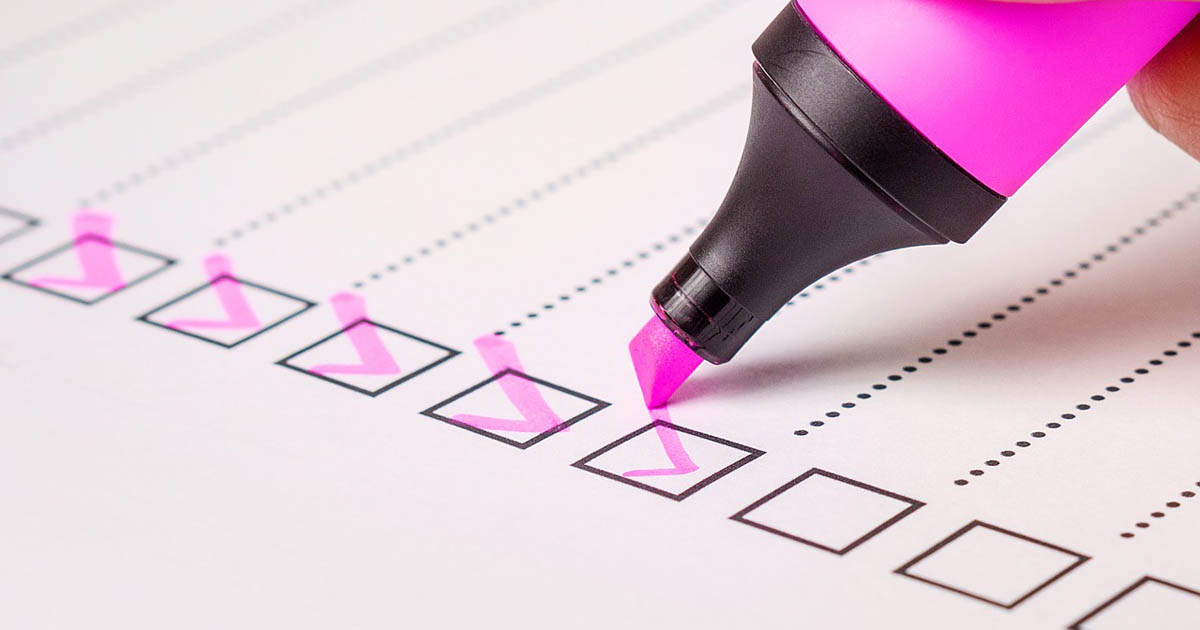
Pondering your own mortality is probably not high on your list of enjoyable activities, and yet getting your affairs in order is advisable for everyone.
You may think “estate planning” is only for the wealthy, or that—since you’re relatively young and/or healthy—you don’t need to worry about such things, but neither is true.
Even people with modest assets can benefit from end-of-life planning, which encompasses much more than just writing a last will and testament. And, as we all know, death doesn’t discriminate by age or any other factor.
A little forethought now about how you would like things to go once you’re incapacitated or gone can give you great peace of mind now, as well as spare your loved ones a lot of hassle later.
What are some of the most important things you can do now? Here is a handy estate planning checklist.
1. Gather important documents and contact information.
Property deeds, vehicle titles, official certificates (birth, marriage, etc.), the contact information for your attorney, insurance broker, doctor—all of these are things you can gather and put in the same, safe place now to make it easier for your loved ones later.
As a bonus, getting all these materials together should also make compiling your estate plan easier, as you will have a lot of the necessary information at your fingertips.
2. Execute a last will and testament.
A will is one of the most important estate planning documents you can have, as it details where you would like your property to go after your death. Unless you make a will, you are leaving things up to your state’s intestacy laws, which apply when someone dies without a will. And you should not assume that the state will make the same choices you would have made.
When you create a will, you, the testator, name an estate administrator or executor: a person you trust to handle the distribution of your estate. You can also name a legal guardian for any minor children and their property, as well as leaving instructions for the care of your pets.
3. Complete a living will or advance directive.
A living will or advance directive is a legal document in which you name someone to communicate with medical personnel regarding your treatment preferences should you become incapacitated or otherwise unable to express your preferences yourself.
Issues addressed in living wills generally include breathing tubes, feeding tubes, and other life-sustaining medical treatments.
4. Put in place a power of attorney.
A durable power of attorney allows you to name someone to be in charge of making decisions for you if you become incapacitated. You may choose to name a separate health care power of attorney for medical decisions and a financial power of attorney for financial decisions.
A health care power of attorney works hand-in-hand with a living will to ensure that your wishes regarding medical treatment are followed. A Health Insurance Portability and Accountability Act (HIPAA) authorization is also necessary to allow others to speak with doctors and nurses about your condition.
5. Establish a living trust.
A living trust can be a great way for you to make sure your wishes are followed after your death, as well as providing for fast distribution of your assets to beneficiaries, avoiding estate taxes and keeping your financial affairs private.
With a living trust, you, as the grantor, retain control over any property placed within the trust throughout your lifetime. Upon your death, your pre-chosen successor trustee gains control of the trust and will then distribute your assets according to your instructions—all bypassing probate, thus saving both time and money.
An irrevocable trust can also serve as asset protection, to protect your property from being touched by creditors or lawsuits.
6. Update your beneficiaries.
If you have life insurance, retirement accounts, pensions, or pay-on-death (POD) or transfer-on-death accounts, make sure your beneficiaries are up to date, as these accounts transfer according to their beneficiary designations; your last will does not control them. Any time there is a change in your family situation is a good time to review your beneficiaries.
7. Secure your digital assets.
Along with online bank, investment, and shopping accounts, many people also have social media accounts that need handling upon the death of the owner.
Facebook, for instance, has a special section in which you can select someone to take over your account upon your passing, but you should also think about what you want to happen with websites, blogs, and any other online activities in which you participate.
8. Plan final arrangements.
Final arrangements can include organ donation, as well as funeral plans, including how they are to be paid for. Pay-on-death bank accounts are often the best way to handle funeral expenses.
Your will isn’t the best place to include this information because it often isn’t read immediately, so a letter to your estate administrator or a trusted loved one is best.
